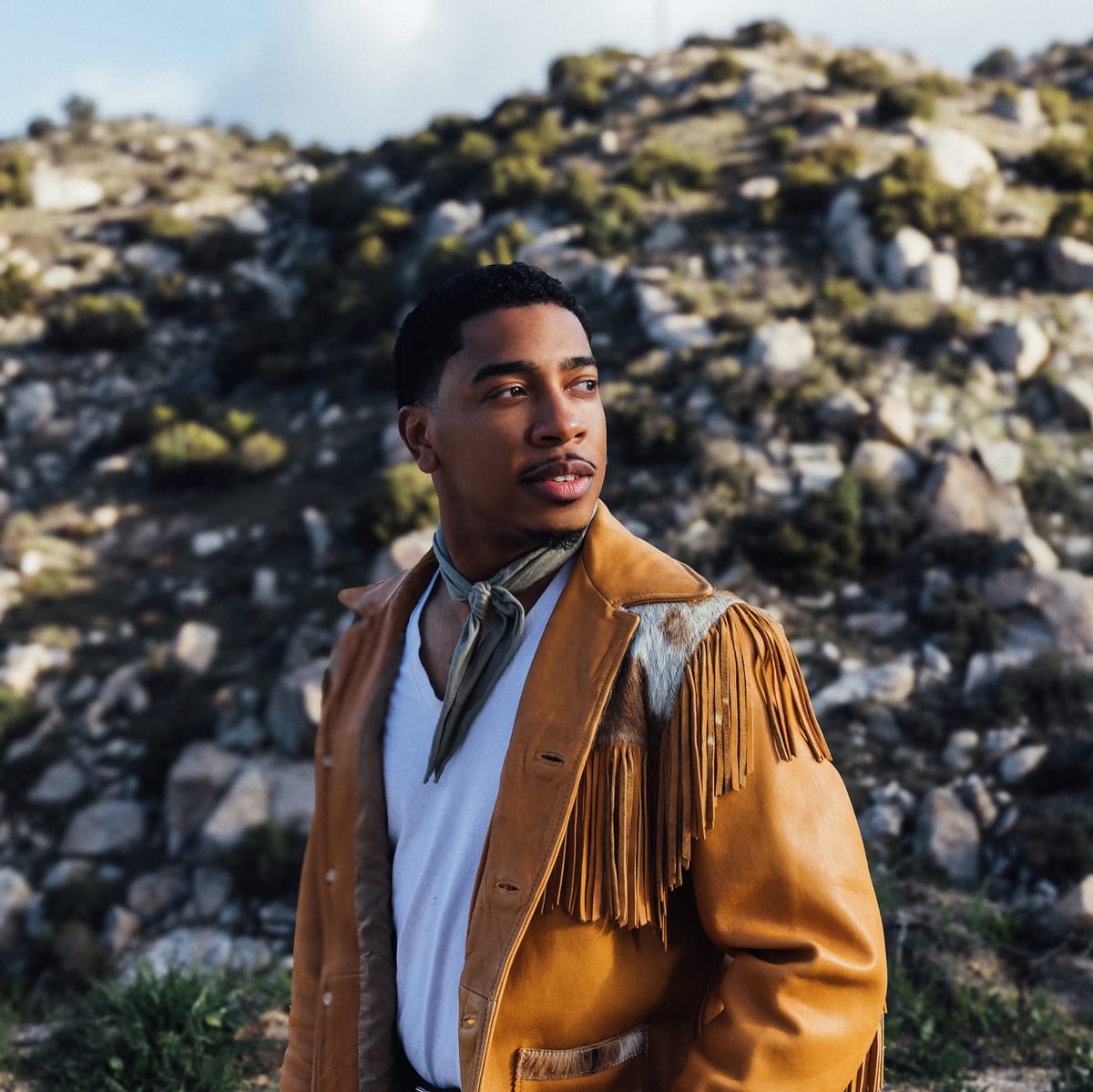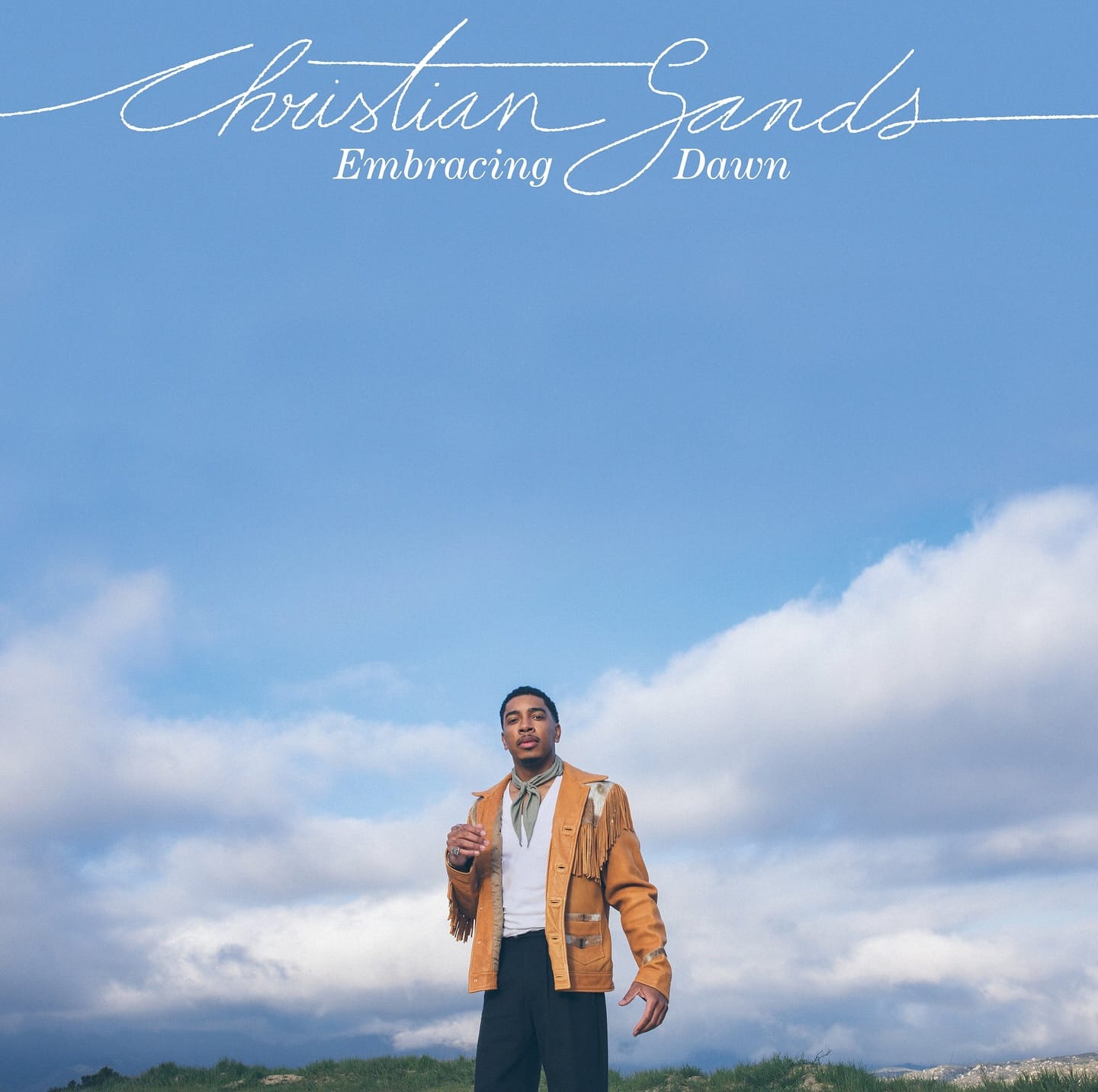Christian Sands: a jazz journey to embrace the dawn

Often, the intermittencies of life create silences that only music can fill. Breakups, similar to interludes, completely change the course of the story, paving the way for a new chapter marked by uncertainty and vulnerability—essential elements that, through the creative process, transform loss into the universal language of art.

If art represents life itself, the piano that opens the album Embracing Dawn is comparable to the first rays of sunlight: the start of a new day or, in this case, a new life. "This project is the most universal conversation I’ve ever had. The record reveals that there’s always more to uncover—both in self-discovery and life's experiences." The words and feelings belong to pianist Christian Sands, who shows us that the evolution behind the music symbolizes the soul's growth. "This album isn’t just my story, it feels like a common dialogue connecting people on many levels. As a musician, my mantra is to tell stories and create spaces where people feel understood."
Through introspection, it is possible to connect with the purest state of the soul, the one that recognizes itself in the stories and experiences of others. "Each song emerged at different points in my healing journey while creating this album. At the time, I was reflecting on where I was in life, both emotionally and personally. I was navigating various transitions, one of the most significant being a heartbreak after a serious breakup." In the search for meaning, Sands discovered that loss does not always mean failure and that pain can be transformed into musical pieces available to those who wish to make them their own. "I initially tried to move past those emotions, almost ignoring that part of me. It wasn’t until I spoke with my friend, the great Stefon Harris, that things shifted. He said, Why don’t you just write from where you are? That advice resonated deeply, so I started writing." He continues, "The composition process became about capturing the emotions and experiences I was living through. It became a connection point, a collective exploration of transitions and losses."
As the music progresses, the dialogue between Christian and his musicians settles into a space of emotional contrast, where the music becomes more technically complex yet remains clear and accessible to the listener. The interaction between the instruments flows with such cohesion that, despite the sophistication, each element remains understandable, revealing a new layer of expression and emotion communicated directly and profoundly. A prime example of this is the second piece, "Divergent Journeys, is about what happens after the initial impact of change—when something unexpected happens, and you’re faced with deciding which direction to take. The piece reflects on figuring out where you want to go, which step to take, and which path to choose." This track marks the first instance where it's possible to hear the fundamental element of jazz: improvisation, "That’s why there are only two solos on the track; I made deliberate choices to ensure the message came through clearly. Where we begin is not where we end, and it’s all part of the journey."
This journey is not only about Sands or the people who can connect with his compositions but also about the musicians who surround him and interpret his gestures and emotions. "I think it’s a beautiful way to make music when you have a story to tell that others can recognize or understand. And even if they don’t fully understand, there’s something beautiful about the human experience where someone says, I may not understand, but I support you, and I understand who you are. That’s the kind of relationship I have with the guys in my band." Alongside him are musicians such as Yasushi Nakamura, Marvin Sewell, Andrew Joslyn, Eli Weinberger, Ross Gilliland, Warren Wolf, Grégoire Maret, and yes, his brother Ryan Sands on the drums, "He’s five years younger than me, and it’s been a beautiful journey to watch him grow—not just musically but also as a person. Playing with him is natural and easy, but it’s also challenging because he pushes me in ways that most musicians or people can’t. We challenge each other, and it makes playing together so much fun. It’s that friendly, brotherly competition, like two swords sharpening each other."
When I play, I try to stay vulnerable and humble within the music, truly listening to where it wants to take me.
The album showcases a dynamic range of musical changes, from bittersweet ballads to futuristic sounds that restore hope. Sands' musical versatility is evident in his passion for different genres. "I love all kinds of music, and I'm especially drawn to electronic music, soundscapes, and film scores. I’m always exploring different ways to express myself through the things I enjoy. Adding keyboards and various sounds has always been part of my approach, but I think they add a unique dimension to the piano and the overall music. It’s like the special sauce I love to sprinkle on my creations." With such a wide palette of ideas and sounds, he needed to turn to instrumentation that's uncommon in the jazz scene. "In Embracing Dawn, which is about longing and finding a sense of home after going through transitions, I knew Grégoire and his harmonica were perfect for it. That song represents reaching the end of a journey, finding yourself, and settling into a new chapter. As for the added strings, I’ve always loved film scores, cinema, and the emotional depth that strings bring to music. They create such rich textures and add another dimension to the sound."
By the time someone reads this, Christian will likely be on tour on some international stage. There, under the spotlight, he will once again face his past and dive into the vulnerability of music, showing that, like music, losses and breakups evolve through improvisation. "For me, improvisation is about the human experience and the emotions we want to convey. It’s not about sticking to specific bebop lines or playing in a particular style. It’s about asking, How do I want to express myself through this story? What story am I telling? Improvisation is like having a conversation. Sometimes, it’s hard to communicate exactly what you mean because you haven’t fully thought it through, but that’s part of the process. It’s all connected—it’s all human. To me, improvisation is the purest form of humanity."
Embracing Dawn by Christian Sands is a place where we meet ourselves, look into our own eyes, and in the reflection appears the silhouette of a pianist improvising. It is his past and, even better, his present, which he embraces with pride and transforms as his notes progress. At the same time, it is the brotherhood he has built with his fellow musicians, a connection accessible in every live performance. It is the documentation of human expression and who we are as people.